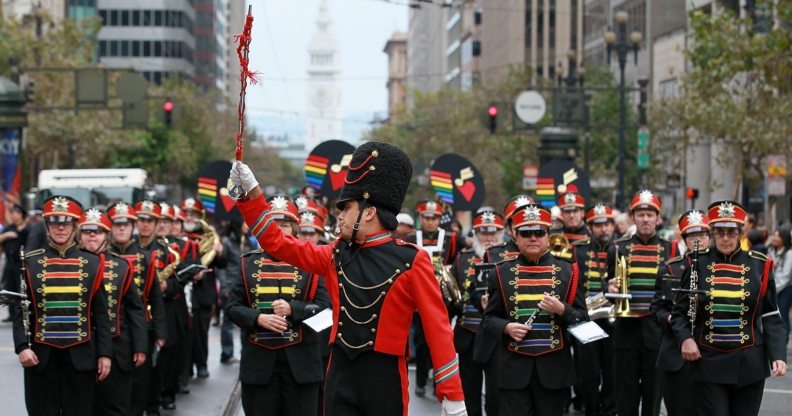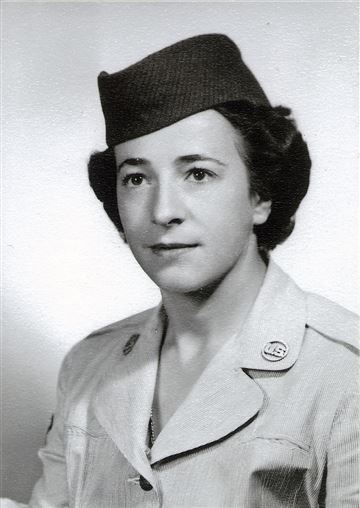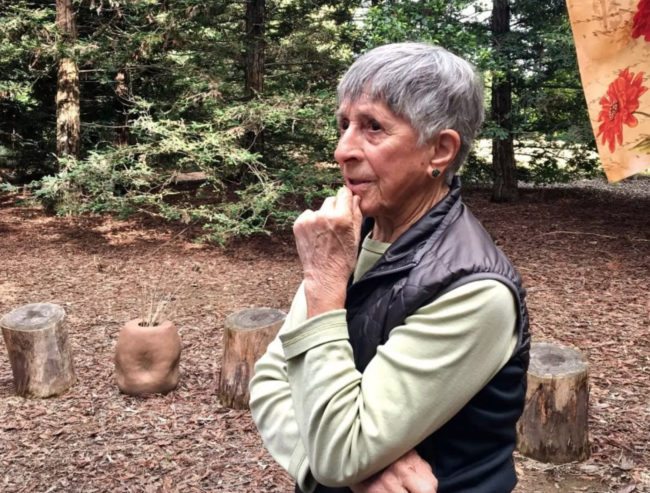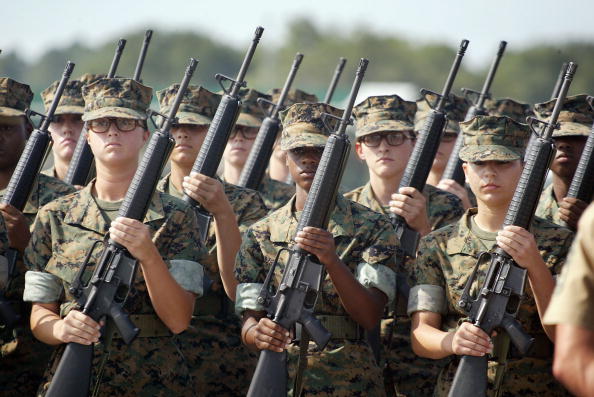90-year-old lesbian finally awarded honourable discharge after being expelled from Air Force in 1955

(Photo by Justin Sullivan/Getty Images)
A 90-year-old lesbian has been awarded an honourable discharge after she sued the Air Force more than 60 years after they expelled her.
Helen Grace James was dishonourably discharged from the Air Force in 1955 after she was followed by the Office of Special Investigations (OSI) in a crackdown on LGBTQ service members during a period that is now known as the “Lavender Scare”.

Helen Grace James
Taking its name from the “Red Scare”, which saw McCarthy and other top US political figures battle communism within the US government, the “Lavender Scare” considered LGBTQ people to be immoral and part of a communist scheme which undermined the American family and American values.
In the lead up to her discharge in the 1950’s, James says she came under intense scrutiny for weeks that eventually made her physically sick.
She was often followed into nightclubs and was arrested after she was followed into a woodland area in New York where she ate with a friend.
After the arrest, she was interrogated for hours and the OSI coerced her into signing a document which ended her military career, threatening to out her to her family if she didn’t comply.
She was discharged as “undesirable” with no severance pay, insurance or other benefits.
She explained that she hadn’t even known she was a lesbian when she was being followed and eventually was arrested.

(Photo by Justin Sullivan/Getty Images)
“I didn’t even know what a lesbian was. I didn’t know that term until later. You just didn’t talk about it,” she said.
After she was discharged, she was left with no option but to move away from her home, friends and family because she was so ashamed of the discharge.
She added: “I had to move myself away. I couldn’t be around my family and friends. I couldn’t be in the same area with that shame.”
The status of her discharge clung to James for the following years of her life as it meant she couldn’t access many of the benefits usually made available to veterans, including health care and college tuition.
She attempted to upgrade her “undesirable” status to “general discharge under honourable conditions” and was successful.

Helen James
However, it still did not give her full veteran status.
Speaking to NBC News, she said that being granted an honourable discharge after the lawsuit holds a lot of value to her.
“It will make me feel like I’ve done all I can to prove I am a good person and that I deserve to be a whole civilian in this country I love.”
Related: Fit to serve: Data on transgender military service
Before the “don’t ask, don’t tell” motto was instated, service members were told to report anyone they believed to be gay, and experts believe that between 1950 and 1956 as many as 5000 people were removed from the armed forces as suspected homosexuals, at a rate much higher for women than men.
However, a blanket upgrade to the discharge status of those who were dishonourably discharged has not yet been rolled out.

Marine Corps recruits practice drill (Photo by Scott Olson/Getty Images)
Elizabeth Kristen, a senior staff attorney at Legal Aid at Work represented James and she said it “is a pretty lengthy process” to get the status of a veteran upgraded.
“When ‘don’t ask, don’t tell’ was repealed, the right thing to do would have been to automatically upgrade the discharge,” Kristen explained.
“There are hundreds of benefits provided to our veterans, but depending on your discharge status, you can be locked out of them,” she said.
Matt Thorn, president and CEO of OutServe-SLDN, an advocacy organization for the LGBTQ military community, said the process for having one’s discharge status upgraded could certainly be improved, adding “the burden of providing information falls heavily on the veterans themselves.”
“They don’t want to wipe the slate clean because there might be some people who were rightfully discharged,” he said. “That’s why they have the individualized process. But could it be improved upon? Absolutely.”
Air Force public affairs officer Kathleen Atanasoff, added that the process required individualism because a complete historical review of the member’s case file had to be done.
Atanasoff said: “The volume of applications has increased substantially over the past five years, which can make the 10-18-month administrative timeline challenging.
“The Board of Military Corrections is dedicated to tackling this through increasing efficiencies in their process and finding ways to expedite the process as much as possible.”

